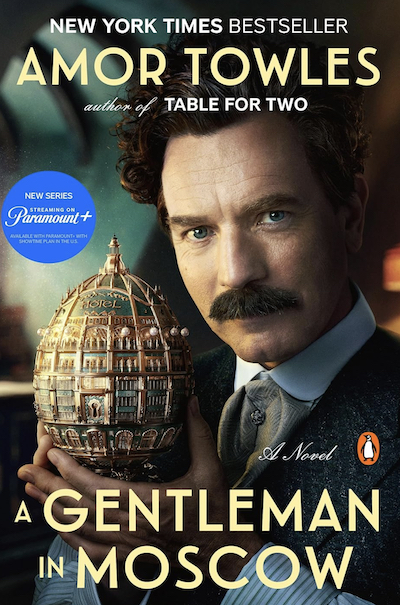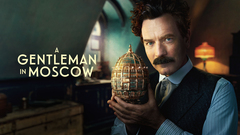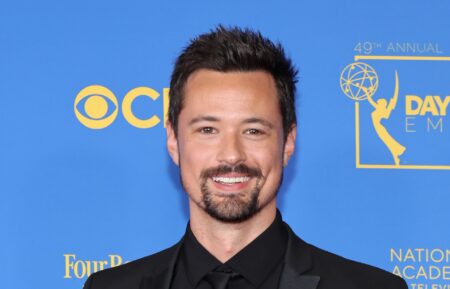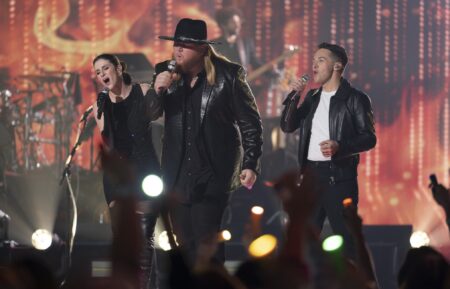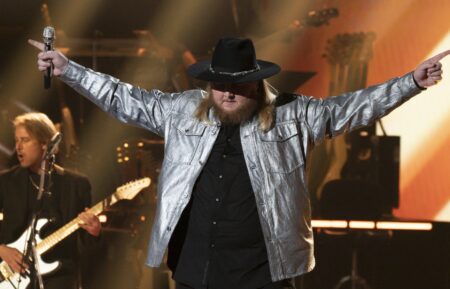‘A Gentleman in Moscow’ Creators Explain That Ambiguous ‘Fairytale’ Ending
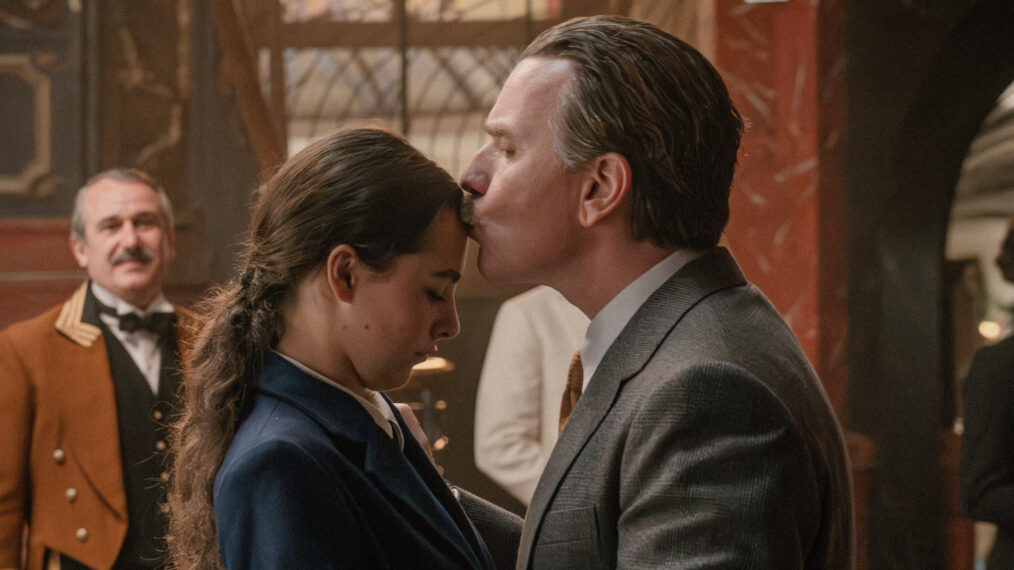
Spoiler Alert
[Warning: The following contains MAJOR spoilers for the A Gentleman in Moscow finale.]
A Gentleman in Moscow‘s series finale honored its source material with an ambiguous ending. The episode, which aired on Sunday, May 19 on Showtime, revealed what happened after Count Alexander Rostov (Ewan McGregor), Anna (Mary Elizabeth Winstead), Sofia (Beau Gadsdon), and the rest of their friends at the Hotel Metropol launched their plan to get Sofia out of Russia. This also led to Rostov walking out of the hotel’s front doors — an act that’s been paired with the threat of death for decades as he carried out his house arrest in the high-end hotel.
After much planning, Sofia’s school trip became the catalyst for her escape in Season 1 Episode 8, “Adieu.” While some roadblocks set her back and threatened her safe departure, the plan worked out in the end. The signal — every phone in the Metropol lobby going off in quick succession — was delivered and the Count knew his daughter was safe. (Sofia was the daughter of Nina, Alexander’s niece-like companion who grew up at the Metropol. The count took Sofia in as his own after Nina’s presumed death, and Anna became her de facto mother.)
Sofia’s journey out of Moscow is the only one we see onscreen. Count Rostov, Anna, and Mishka’s (Fehinti Balogun) journeys after leaving the hotel for the last time were not shown. And like in Amor Towles‘ best-selling book of the same name, we never find out what really happened to the Count and Anna in the end. We did, however, see the couple one last time in the final frame.
The final moments of A Gentleman in Moscow show what appears to be one of Sofia’s memories, filmed just like the memory flashbacks from the Count’s point of view that viewers saw all season. Only this time, there are a few hints that indicate this is only a figment of Sofia’s imagination, not something that actually happens. In Towles’ book, there’s a brief passage hinting that Alexander made it back to his ancestral home and met Anna there. Sofia’s imagination in the finale takes things a step further by actually showing the Count and Anna together working peacefully outside of a small cottage.
We know this to be a fantasy because of the black apples (a reference to the family legend the Count would tell his hotel friends) and Sofia’s narration. The apple story said that a person could start their life anew if they were to find these “apples as black as coal.” A grown Sofia is heard saying that she never saw Alexander and Anna again after escaping to America.
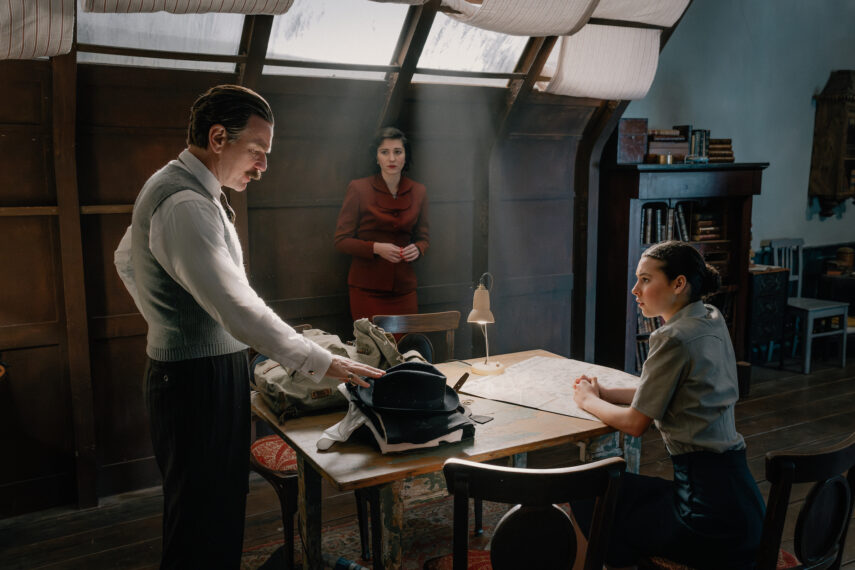
Alexander, Anna, and Sofia plan Sofia’s escape to America (Ben Blackall / Paramount+ With Showtime)
“I discovered that Papa had escaped the hotel, but what happened after remains a mystery,” Sofia says. “I like to imagine [Alexander and Anna] finally free, living out the rest of their lives together. They gave me the greatest gift of life. I’ll keep them in my heart. Always.”
The ending was meant to be ambiguous like the book.
“It was about for us, allowing space for the viewer to perhaps decide for themselves what happened and giving them some ownership in that moment rather than trying to be too polemic or didactic about it,” showrunner and executive producer Ben Vanstone tells TV Insider. “We wanted to give some room so people could go away and be left thinking about the story a little bit rather than just necessarily getting everything they want.”
Director Sam Miller says they wanted a “fairytale” feel for the final moments, even though it’s not an explicitly happy ending.
“The key to that was Sofia’s imagination, playing into how Sofia might have imagined the story to have ended,” Miller explains. “That’s what gives it its slight fairytale quality.”
The creative team set out to recreate the feeling of reading Towles’ book when creating this series.
“I think what we wanted to do with the ending was try and capture the same feeling you have in the book. For me, it’s about the emotion of that moment rather than necessarily what happens,” Vanstone explains, adding that his personal experience reading the book produced that same feeling of wonder and ambiguity, but he also walked away feeling that the story was still complete regardless of it ending with a mystery.
“You finish it and it’s not entirely clear. You kind of get a sense of it,” Vanstone says. “And it also is a sum of more than its parts when it all comes together at that end point. It reminded me of One Hundred Years of Solitude as well in some ways, that sort of ending where it’s sort of a magic to it. So it’s all about capturing that.”
It is satisfying to see the POV memory motifs flipped into Sofia’s imagination. Those flashbacks were used as a plot device to show Alexander’s painful memories as he reflected on his life during imprisonment. In the final moments, we get to see him happy with the love of his life as they watch their daughter walk towards them. It’s a fantasy, but one worth showing. Miller explains how this memory flashback idea took root, saying it was something they got “very excited” about “very early in the development” of the limited series.
“We got very excited by the idea that the Count is reaching for his memories,” Miller explains. “One thing you do as soon as you’re cut off from your day-to-day, as soon as you’re encased like that, is you start to analyze what’s happened to you and look at all the things in your past. So we were trying to find a filming style that wasn’t too narratively driven, but could summon the feelings and the emotions that you have when you think about yourself as 6 years old or 10 years old or 18 years old.”
“So we try to make them very emotional and very subjective, so they’re all shot from the Count’s point of view,” he continues. “I think it gives them a real special place within the drama in a sense because it’s not telling you the story’s moving on, but it’s giving you real insight into what the Count’s experiencing and how he feels about himself and how he tries to work out what’s going on.”
Towles says it’s “a great example of how they’ve taken the written word and reinterpreted it for the visual medium.”
“As the writer, I couldn’t create that experience,” Towles tells TV Insider. “When you see those flashbacks, because they’re from the Count’s point of view, it’s like when we have a dream or when we have a memory, we don’t see ourselves in the dream or the memory. We see what we’re watching. And so for the viewer, you’re going to have this feeling of being in his position in this dreamlike moment, and that’s a visual experience that I couldn’t create in writing. The two art forms have their different advantages, and you’re trying to use the advantage of one to amplify the strengths of the other.”
“I think it was all there in the novel as well that you would get a sense of the Count’s previous life and his backstory, but we had to find a way to present that visually,” adds Vanstone. “So again, it’s about taking the novel and what’s there and making it work for television.”
A Gentleman in Moscow, Season 1 Available now, Paramount+

